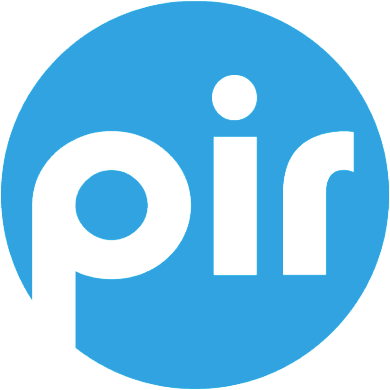The energy in the air is nervous today. Eyes are low, constantly shifting from Twitter and Facebook mobile apps to the Arrival/Departure signs overhead. Security dogs are pacing up and down the halls as armed policemen herd us all like sheep. A man gets on the intercom and announces, “All trains traveling to Boston are suspended indefinitely until further notice.” Like clockwork, literally, all of the “ON TIME” trains scheduled to travel to alternate cities turn to “STANDBY”, “LATE” or “CANCELLED.” Penn Station is growing chaotic quickly, and “Police activity in Boston” is the answer to everything.
The Public Interest Registry team came to NYC this week to participate in the Big 3 Conference, hosted by PR News at Grand Hyatt Central. Given the focus on social media communication strategies, news updates about the Boston Marathon attack — on Twitter and Facebook — did not go unnoticed by attendees in-between meetings and panels.
Despite feeling disheartened by the details of this catastrophic event, we were amazed to hear the stories — about the runners who kept running to local hospitals in Boston to donate blood; the firefighters, military vets, EMS, and policemen who helped get people out of danger; and the doctors who have been working relentlessly through the evenings and early mornings to monitor their patients. We also felt proud to see dot ORGs join forces and work diligently to try and alleviate the situation at hand in any way possible.
Immediately following the bombings at the finish line on Monday, Google.org activated its Google Person Finder tool so that family, friends and loved ones could search for or provide information about people that may have been missing or potentially injured. By the end of Wednesday, the tool was tracking just under 6,000 accounts – enabling controlled conversation between dispersed parties during a time of disaster.
American Red Cross, an official charity of the Boston Marathon, also exercised a tool similar to Google’s Person Finder called Safe and Well. Ultimately, this response tool helped to unite the community; it enabled emergency responders to delivery deliberate communication; and it helped people find participants and/or spectators that were present during the Boston Marathon attack.
There has unfortunately been concern about recently launched websites that aim to fraudulently raise funds at the expense of this tragedy. On this topic, the Better Business Bureau released a statement on Tuesday saying:
“There are already more than 125 domain websites with names connected to the Boston terror attack. Most of the time, legitimate [relief] websites will have a dot org at the end of their address – not a dot com.”
According to Public Interest Registry’s statistics, 156 dot org domain names were registered between April 15 -19, relating to the Marathon. All of these names currently have an active status, which suggests that all are active websites; however, this cannot be determined unless the sites are visited. Public Interest Registry maintains an anti-abuse policy and will take appropriate action in the event that we become aware of actual fraud or abuse related to these domain names. At this time, we have no information indicating that any of these domains are engaged in fraudulent activities.
Public Interest Registry would like to express its deepest sympathies to all of those who have been affected by the events that have taken place this week. To the Boston community, do not give up. Trying times are times for trying; together, we will get through this.
Sincerely,
The Public Interest Registry Team
